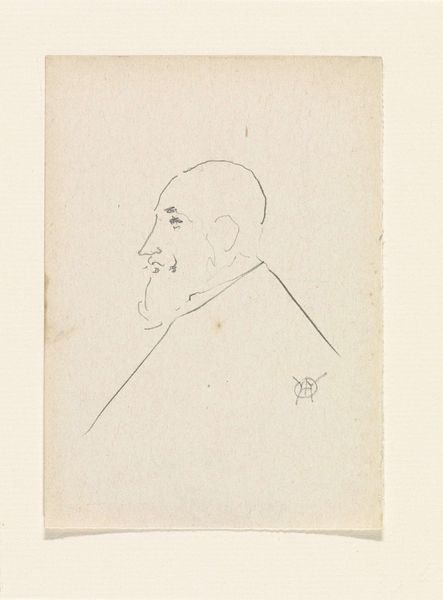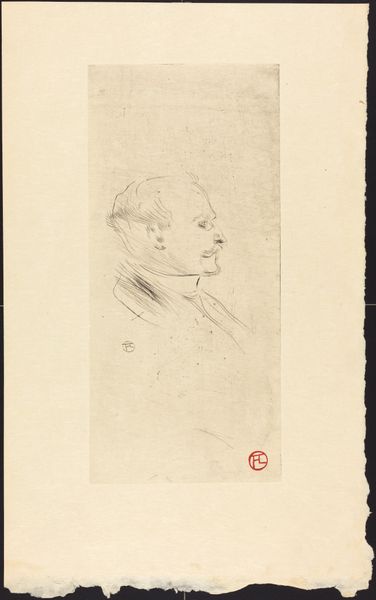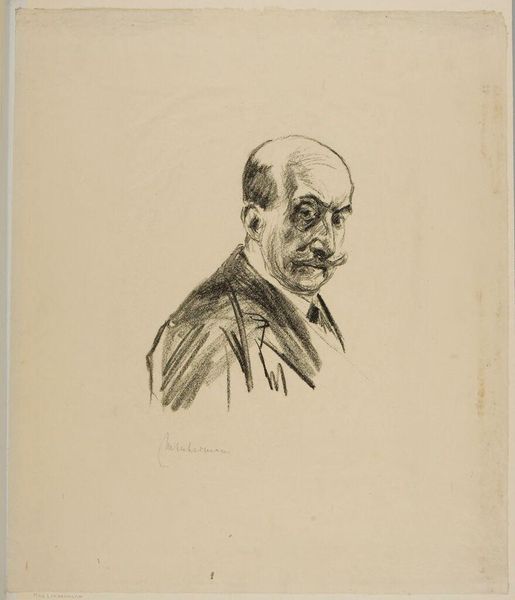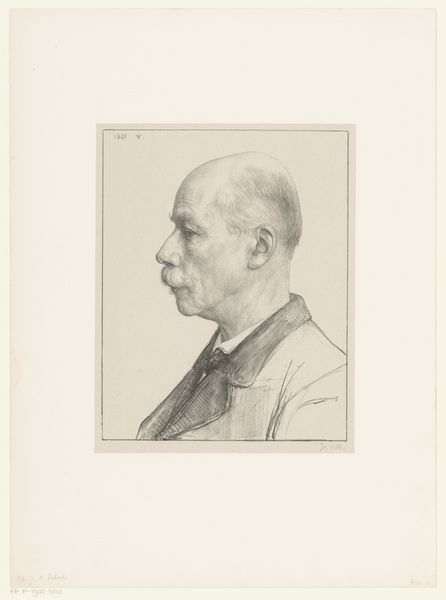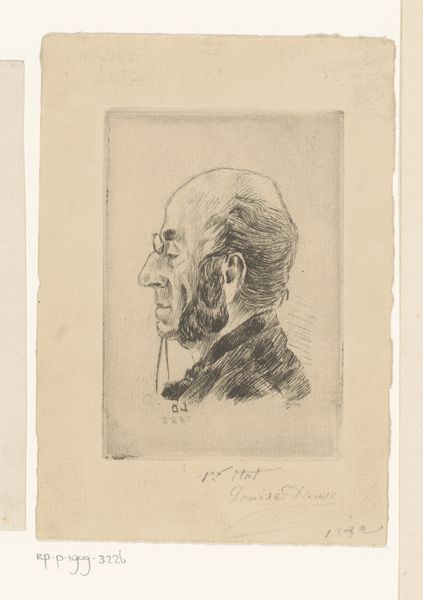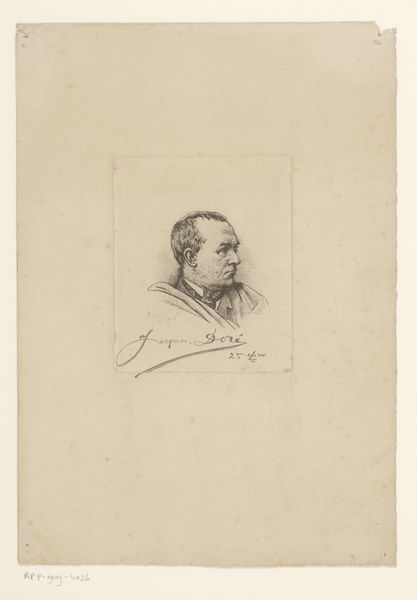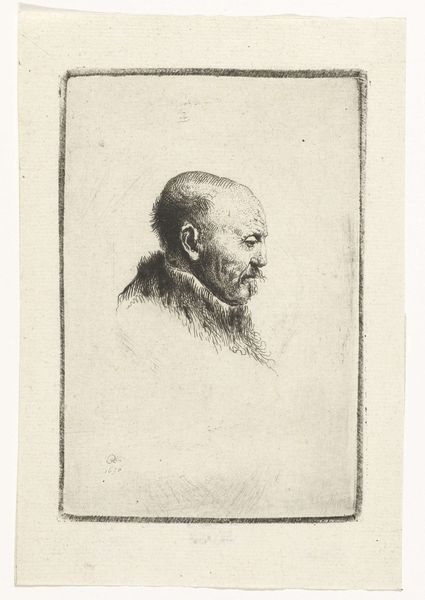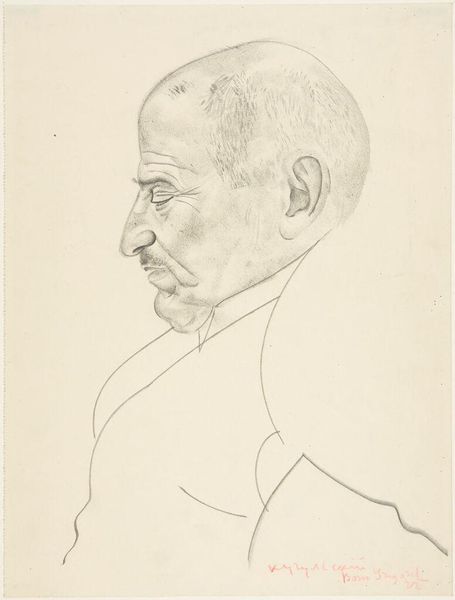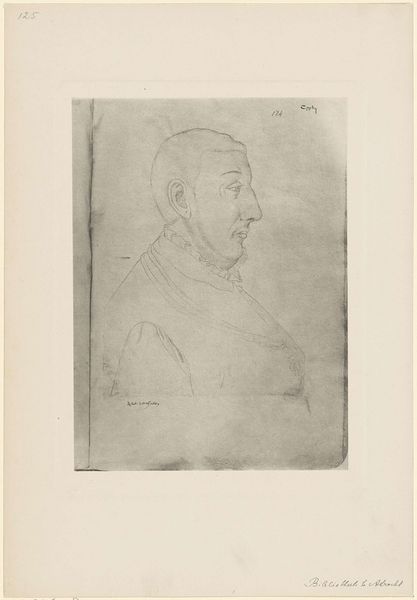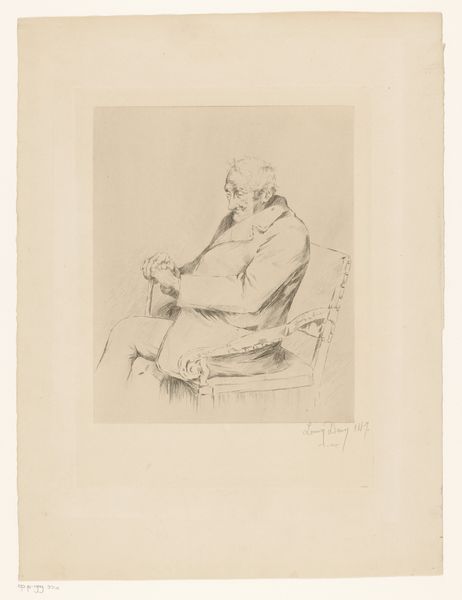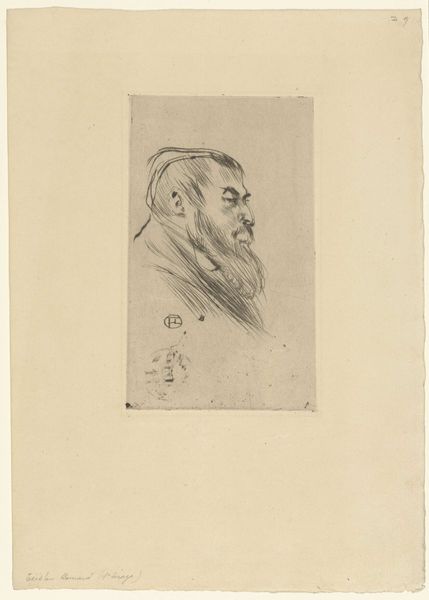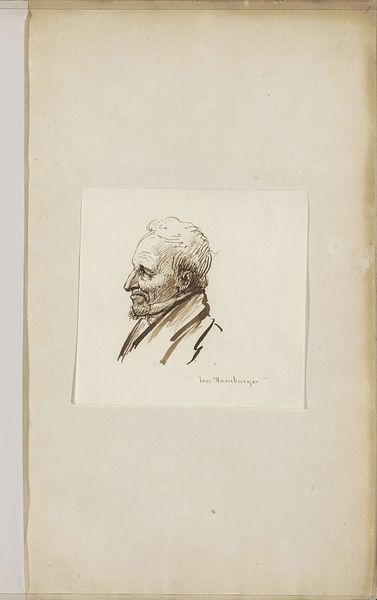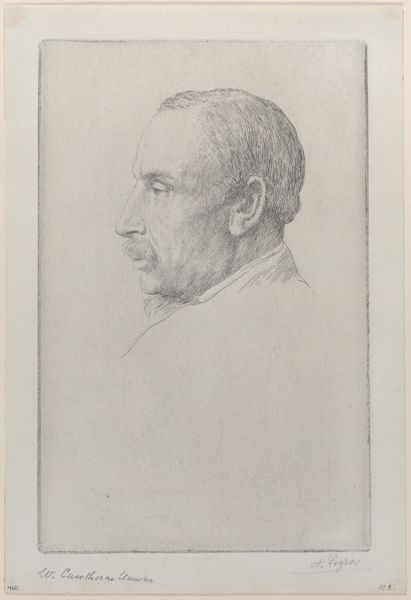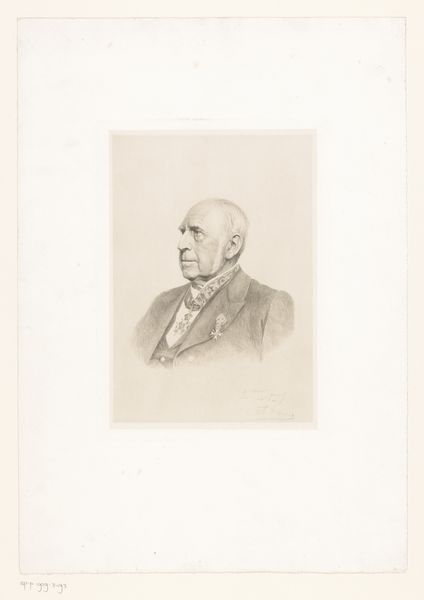
drawing, print, pencil
#
portrait
#
pencil drawn
#
drawing
# print
#
pencil sketch
#
pencil drawing
#
pencil
#
pencil work
#
realism
Dimensions: 164 mm (height) x 98 mm (width) (bladmaal)
Editor: This is Henrik Arnold Hamilkar Sørensen’s pencil drawing, "Erik Skram," created in 1897. It's a profile portrait, almost ghostly in its delicacy. What symbolic weight might it have carried in its time? Curator: Consider the stark profile: bald head, strong nose, trimmed beard. It's an austere image. Sørensen has chosen to depict Skram not face-on, but in profile, turning away. What does it evoke for you, this sense of distance? Editor: Perhaps a guarded nature? Or maybe just a formal pose of the time? I guess I am curious why a drawing. Was Skram important? Curator: Skram was a Naturalist writer. Sørensen, in choosing a simple pencil medium, perhaps sought to capture Skram’s essence in a direct and unadorned way. The profile becomes an everyman in an industrial age of rapid political reform. Consider the deliberate turning away - What political movement might Skram be supporting by hiding himself in this image? Editor: That makes me think about how even "realism" is a choice. The artist is emphasizing certain qualities, and perhaps concealing others. Curator: Precisely. Sørensen highlights intellectual rigor while simultaneously presenting an almost melancholy image of the human subject, suggesting that society’s transformation happens with a high amount of effort, and mental struggle. So much conveyed through a simple shift in perspective! Editor: I see it differently now, it's less about the individual and more about the pressures on that individual at a specific point in history. Curator: Exactly. We are all products of cultural memory, layered and subtly inscribed.
Comments
No comments
Be the first to comment and join the conversation on the ultimate creative platform.
